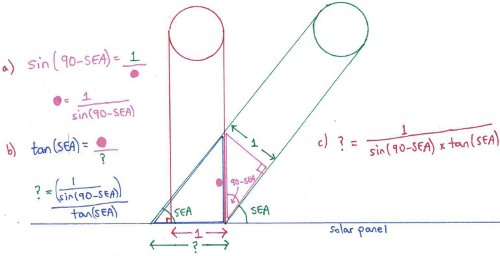This is because the sun is always in the southern half of the sky in the northern hemisphere.
Determining ideal solar panel angle.
Since solar panels are more productive when the sun s rays are perpendicular to their surfaces the certainly best orientation is the one directly true south azimuth angle 180.
While the angle of your solar panels is important a more important factor in your energy production is going to be the direction your panels face.
To get the best out of your photovoltaic panels you need to angle them towards the sun.
Tilt azimuth angle.
The summer optimum tilt angle on the other hand will be 34 15 19.
Subtract 15 degrees from the latitude at your location during summer and add 15 degrees to your latitude during winter.
On the contrary in the countries of the southern hemisphere such as south africa and australia the best orientation is true north.
For the best results solar panels should be oriented towards the south.
It just depends on where you live.
Positive 90 degrees is facing due west negative 90 degrees is facing due east.
Finding the optimal tilt for your solar panels.
As a general rule of thumb keep in mind that the panels need to be more vertical during winter to face the lower sun directly and more tilted towards the ground during summer to face the higher sun.
This solar angle calculator tells you by location the optimum angle to get the best out of your system.
The other half of the equation is finding the vertical.
For a precise method use the second formula on this page to calculate tilt angle.
There s a simple rule of thumb for calculating the best tilt angle for fixed mount solar panels.
The compass angle shows 180 for south 90 for east and 270 for west.
In most of the solar pv energy calculator tools an azimuth value of zero is facing the equator in both northern and southern hemispheres.
For instance if your latitude is 34 the optimum tilt angle for your solar panels during winter will be 34 15 49.
The optimum tilt angle is calculated by adding 15 degrees to your latitude during winter and subtracting 15 degrees from your latitude during summer.
Calculating the ideal angle for your solar panels is not that difficult.

